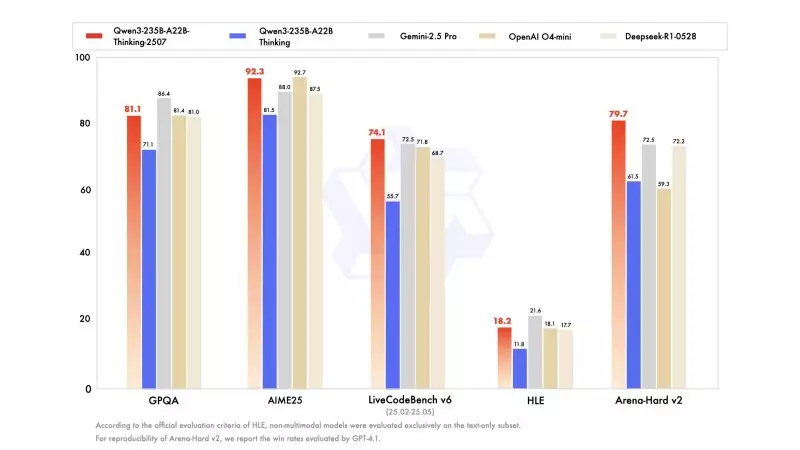In the rapidly evolving landscape of artificial intelligence, few developments have been as striking or impactful as Alibaba’s recent push with its Qwen series. Unlike traditional AI models constrained by proprietary licenses and limited customization, the Qwen family exemplifies a bold vision: democratizing high-performance AI through open-source access, strategic specialization, and cutting-edge technical design. This approach not only democratizes innovation but also pushes the entire industry toward higher standards of transparency, adaptability, and enterprise readiness.
Alibaba’s decision to release not one, but multiple advanced models in quick succession underscores a profound shift. It evidences a desire to challenge existing hierarchies dominated by titans like OpenAI and Google, and to establish the Qwen suite as a formidable open alternative that combines technical excellence with practical usability. The release of models trained explicitly for reasoning, multi-language translation, coding, and instruction tasks displays intent—crafted to serve diverse enterprise needs rather than a one-size-fits-all mentality.
Breaking Benchmarks, Building Trust
What makes the latest wave of Qwen models genuinely exceptional are the benchmark results—clear indicators of their technical superiority across critical AI domains. The flagship, Qwen3-235B-A22B-Thinking-2507, exemplifies this progress. Focused on complex reasoning, it boasts remarkable scores on demanding tests like AIME25, finishing ahead of industry giants such as OpenAI’s o4-mini and Google Gemini-2.5 Pro. Such performance isn’t merely a statistical achievement; it signals a significant leap forward in AI cognitive capabilities, especially for open-source models.
These models aren’t just about raw performance metrics—they are meticulously designed for real-world application. In code generation, the Qwen3-Coder-480B surpasses GPT-4.1 and Gemini 2.5 Pro, supporting vast token contexts and enabling complex workflows that mirror enterprise-grade needs. Meanwhile, the multilingual Qwen3-MT is optimized for global business contexts, handling over 92 languages with features tailored for specialized translation tasks. The breadth of these models showcases a strategic emphasis on flexibility and domain adaptation, vital as organizations seek AI solutions that integrate seamlessly into their specific ecosystems.
Strategic Focus on Modular Specialization
One of the most insightful aspects of Alibaba’s approach is its recognition that different AI tasks require distinct model architectures. Moving away from hybrid models that oscillate between “thinking” and “instruction,” Alibaba now employs dedicated models optimized for their specific roles. This specialization allows each model to push benchmarks further, achieve better consistency, and deliver clearer, more reliable outputs.
This modular philosophy offers clear advantages: enterprises can select models tailored for reasoning, coding, translation, or instruction, rather than settling for one generalist that may excel in some areas but falters in others. It also fosters innovation—developers can fine-tune each specialized model independently, explore new techniques, and adapt models for niche applications without risking degradation across unrelated tasks.
Furthermore, this segmentation empowers organizations to take full ownership of their AI infrastructure, enhancing control over data privacy, latency, and compliance—a critical advantage in sensitive or regulated environments. Alibaba’s open licensing strategy amplifies this benefit, as the Apache 2.0 license allows seamless, unrestricted adaptation, integration, and deployment of these models in commercial settings.
Open-Source as an Equalizer in the AI Ecosystem
The open-source nature of Qwen models fundamentally alters the traditional AI power dynamics. Most leading models are locked behind platforms that limit customization or impose high costs on scale. In contrast, Alibaba generously offers these models via Hugging Face, ModelScope, and its own APIs, free or at minimal cost, fostering a vibrant ecosystem of innovation and experimentation.
This approach has profound implications for startups, research labs, and large corporations alike. It lowers entry barriers, enabling a broader base of developers to experiment, refine, and deploy sophisticated AI without hefty licensing fees or restrictive access. For organizations concerned about data sovereignty and operational flexibility, the permissive Apache 2.0 license provides a rare combination of power and freedom—a recipe for broader AI adoption and democratization.
In an era where AI’s strategic importance is undeniable, Alibaba’s openness presents a compelling alternative to proprietary walled gardens. It empowers users with full ownership over their models—modifying, hosting, and integrating them into bespoke solutions—without the risk of vendor lock-in, usage caps, or opaque operational policies.
The Future of Enterprise AI Lies in Tailored, Transparent Solutions
Alibaba’s strategic move signals a new era—one where open models don’t just compete with big-tech proprietary offerings but often surpass them in both performance and flexibility. As the AI world becomes more complex and demands more nuanced solutions, organizations increasingly seek models that can be fine-tuned, extended, and aligned with their specific goals.
The emphasis on transparency and modularity foreshadows a future where AI systems are not monolithic black boxes, but adaptable building blocks tailored to diverse industry needs. Alibaba’s focus on releasing specialized, high-performance models with permissive licenses is setting a standard—blazing a trail for a more open, innovative, and empowered AI industry.
This shift also raises critical questions about the evolution of AI power centers. Will proprietary models maintain their dominance, or will open-source ecosystems like Qwen reshape the industry’s landscape, elevating democratized innovation above closed solutions? If Alibaba’s recent releases are any indication, the future seems poised for a broader, more competitive, and more accessible AI universe—where strategic openness accelerates progress and unlocks possibilities previously confined to corporate giants.

